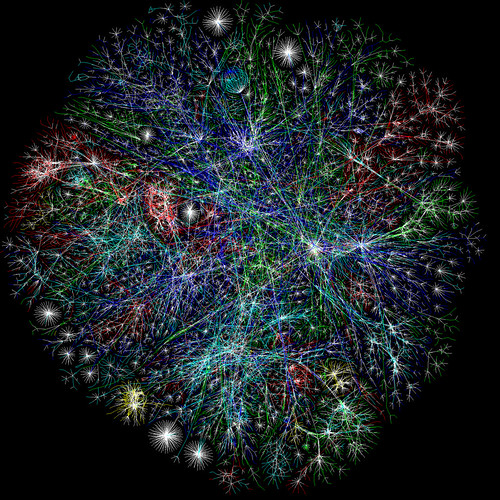I need to change the way I record book recommendations. A friend recommended this book to me but I didn't write down who it was. Now I wonder about who it was and am curious about whether it was someone criticizing my involvement with technology or if they thought I'd simply be interested. Whichever was the motivation, my response is perhaps different that they might have anticipated. I am reading this not so much as a morality tale about technology but instead a reflection on assessment.
The book has received mixed reviews. The writing has been criticized as lacking in literary merit. The criticisms may be justified, but still the book offers opportunities for discussion of the new mania for measuring everything and then rewarding or punishing based on the numbers.
I also had to laugh at the images created of the multi-tasking demands made on The Circle's employees. I'm about half way through and the protagonist is now having a fourth screen installed on her desk. (Which makes me wonder if the author doesn't know about tiling windows on a screen.) But still...
I'm close to several customer experience employees and know the pressures on them to produce high "numbers" are ridiculous. The "metrics" being produced each day to evaluate their work are dizzying and oppressive. In contrast I consider Mihaly Csikszentmihalyi's concept of flow. Based on his work, being focused on numbers actually probably makes it impossible to work within a state of flow. In my own professional life I am drowning in data and assessment (including huge pressures to "raise" numbers). Last night some of my World of Warcraft guild members and I were discussing the effects of assessments on the abilities of teachers to include innovative, engaging, relevant activities/content in this instruction. One of us retold a story of teachers energized by ideas of game-based learning and inclusion of student created machinima (or movies) in the curriculum. But the teachers quickly shut down when they realized that they wouldn't be able to create multiple choice tests to measure achievement of standards connected to these exciting curriculum/instruction ideas. We then discussed the problems several of us were seeing in young adults/adults being successful in completion of post-secondary education (or graduation from high school). I have to believe that there is a link between the difficulty many are having with completing school and our increased emphasis on test scores. (This would be a side-effect of attempts to reform/improve education that we forget to measure.)
Maybe a random connection (this is the way my mind works) but it perhaps helps build my case--
Act Two. Is That a Tape Recorder in Your Pocket, or Are You Just Unhappy to See Me?, a segment from This American Life first aired on 9/10/2010. In the second segment of the show the story surrounds the effects of assessment numbers on policing in New York City. In short, it was not good!
There's a principle in science "by measuring you distort." I think it's time in our era of easily obtained numbers that we go back to this fundamental idea. Another principle that I haven't heard recently is "garbage in--garbage out."
I know I am swimming upstream trying speak out against "data collection" (especially since that is part of my work responsibility) but I think we need to take a moment to pause and consider if we're guilty of putting the cart in front of the horse in much of our assessment plans. I'm not convinced that we have learned how to identify data that will actually measure the critical factors leading to success or excellence in most of our endeavors. Not only that, but I am concerned that focusing all this human capital on getting "the numbers up" instead of working on actually doing/producing something is going to have long term disastrous effects on our economy.
There's also a risk that in search of perfect ratings that we are in danger of eliminating creativity and genius. When we become preoccupied with numerical ratings, particularly those from rubrics, we can easily miss the unexpected or creative. For example, I'm pretty certain that if O'Keeffe's, Van Gogh's, Monet's, or Kadinsky's works had been measured using a rubric developed by a committee that they would have been identified as "does not meet standards."
